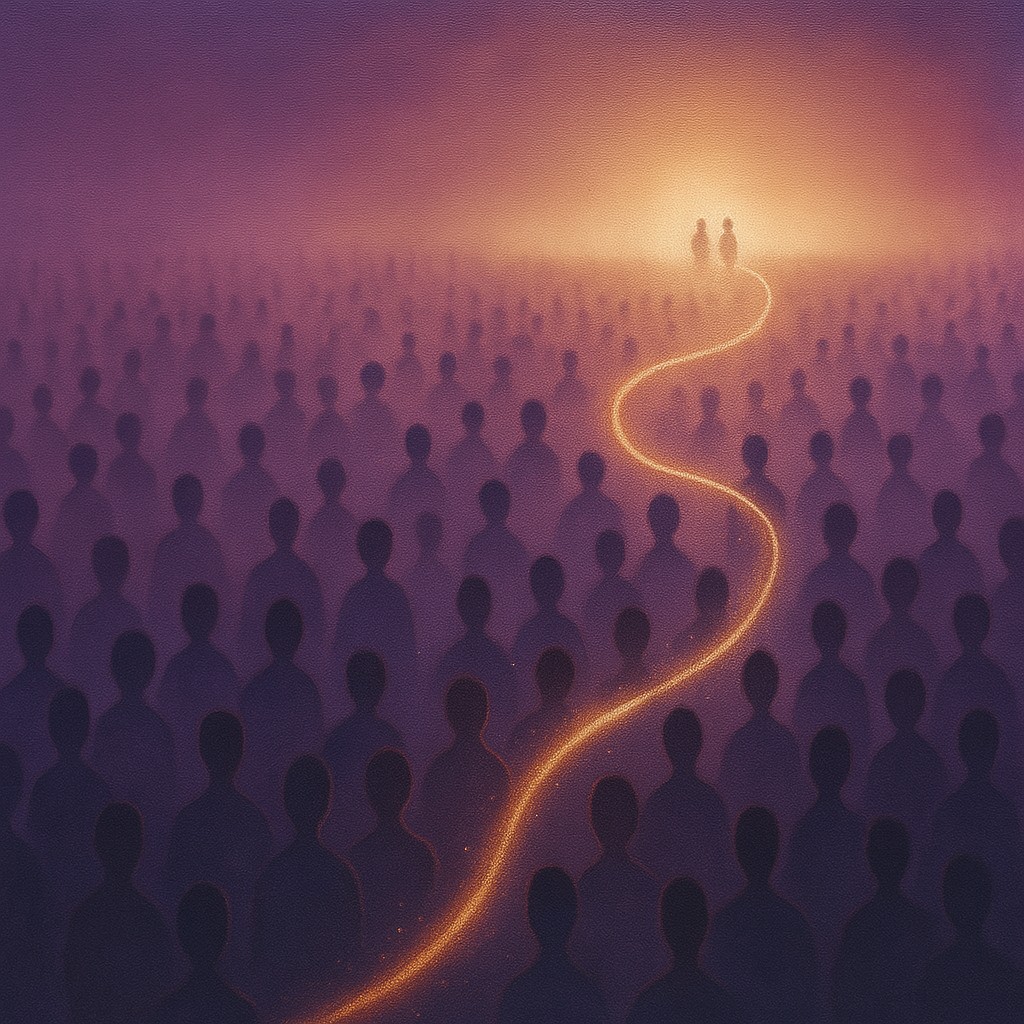Main moments
For seven years since then I sat where the spring graduating students sit now, excited about the future and unsure of the journey ahead of me.
At NTNU I was challenged in everything from mathematics and programming to economics and management. But after five years, I was left with a great loss: We learned almost nothing about the world's greatest challenges -- and perhaps more important: how we could help solve them.
NTNU's vision is “Knowledge for a Better World”. But how is that knowledge put to work. You who are graduates of Indøk now have learned everything you need to be able to create technological progress. But — the progress of the world does not come from technological innovation per se, but from which troubles it solves -- and how the technology is used. Many innovations are impressive, but of little benefit -- or even do harm.
An even better The weather forecast in Norway has a marginal value. But for poor small farmers in the global south, better access to weather data could mean better crops and livelihoods.
Challenges are lining up for those of you who will: the climate crisis, infectious diseases, extreme poverty. Despite the privileges you have, the world is not a good place for everyone.
There are still 700 million people in the world. less than 25 kroner a day, and every year nearly 5 million children die before they turn five -- most of causes we could have prevented.
Some problems also threaten us: Antibiotic resistance takes the lives of 1.5 million annually, and even in Norway it costs hundreds of lives per year. Covid-19 placed major constraints on their first two academic years, taking over twenty million lives globally. It could happen again. Scientists actually believe it is 50 percent probability for a new and equally deadly pandemic before 2050.
It's easy to feel powerless. But there is hope. Just look at what has happened in the last 18 years, since you had your first day at school: Since 2007, the proportion living in extreme poverty has fallen from twenty to eight percent. And child mortality has almost halved That means three million fewer deaths each year. Three million!
The biggest obstacle to people trying to solve these problems is not lack of commitment, but that many do not believe their contribution is of any use. That they alone can't possibly make a difference. But it's wrong.
You are resourceful young people with one of the best educations in the country -- in one of the richest countries in the world. As anthropologist Margaret Mead is supposed to have said -- and yes, even civil engineers can quote anthropologists “Never doubt that a small group of thoughtful, committed citizens can change the world; indeed, it's the only thing that ever has.”
It's barely Someone who has as good a chance of success as you. That the challenges are large and complex, it should not paralyze you -- it should motivate. As a young person in the world of work, you are advised to say yes to new challenges, and to be ambitious. I would urge you to be ambitious not only on your own behalf, but also on behalf of the world.
In the book Moral Ambition by Rutger Bregman, four types of people are described, categorized according to two axes: idealism and ambition. Many are located on the bottom left -- with little of both. Others have great idealism but low ambitions — here you will find internet activists and those who think it is enough to reduce their own emissions.
Others are professionally ambitious but have occupations that contribute little to a better world. Does anyone feel hit?
My call to you, of course, is to aim for the top right corner; to be morally ambitious. It will serve the world, and my experience is that it will also give you a richer life.

You can develop technology to benefit the world's poor, take a job in an effective aid organization, become a politician to fight the cause of the weak, change financial markets from within, or try to get rich to give it all away.
I know many of you have already signed your first job. But this doesn't just apply now, it applies to their entire working lives. Use the first few years to learn, to try and to reflect. When you change jobs one day, remember my advice.
On your first day at work, you will be among them. 3 percent in the world with the highest income. You have a wonderful starting point — and knowledge that can make the world better.
Dear students, the journey is not over — it is now that it begins. You have knowledge, power and opportunity. Use them well -- be morally ambitious. Good luck to you!
This is a shortened version of the “business community speech” that the author gave for the graduation ball at Indøk NTNU on 6 June.
More from Langsikt

This is how budget growth can be slowed
The government should get help to stop new spending. It comes out in the state's own evaluation.

Politics for the Future: How to better include the interests of future generations in Norwegian politics
Four proposals for institutional changes. Memo will be published no later than Wednesday, August 25.

What do we owe the future?
It may seem obvious that Norway should contribute more to combating climate change. But must Norway always do what is best for the world?

